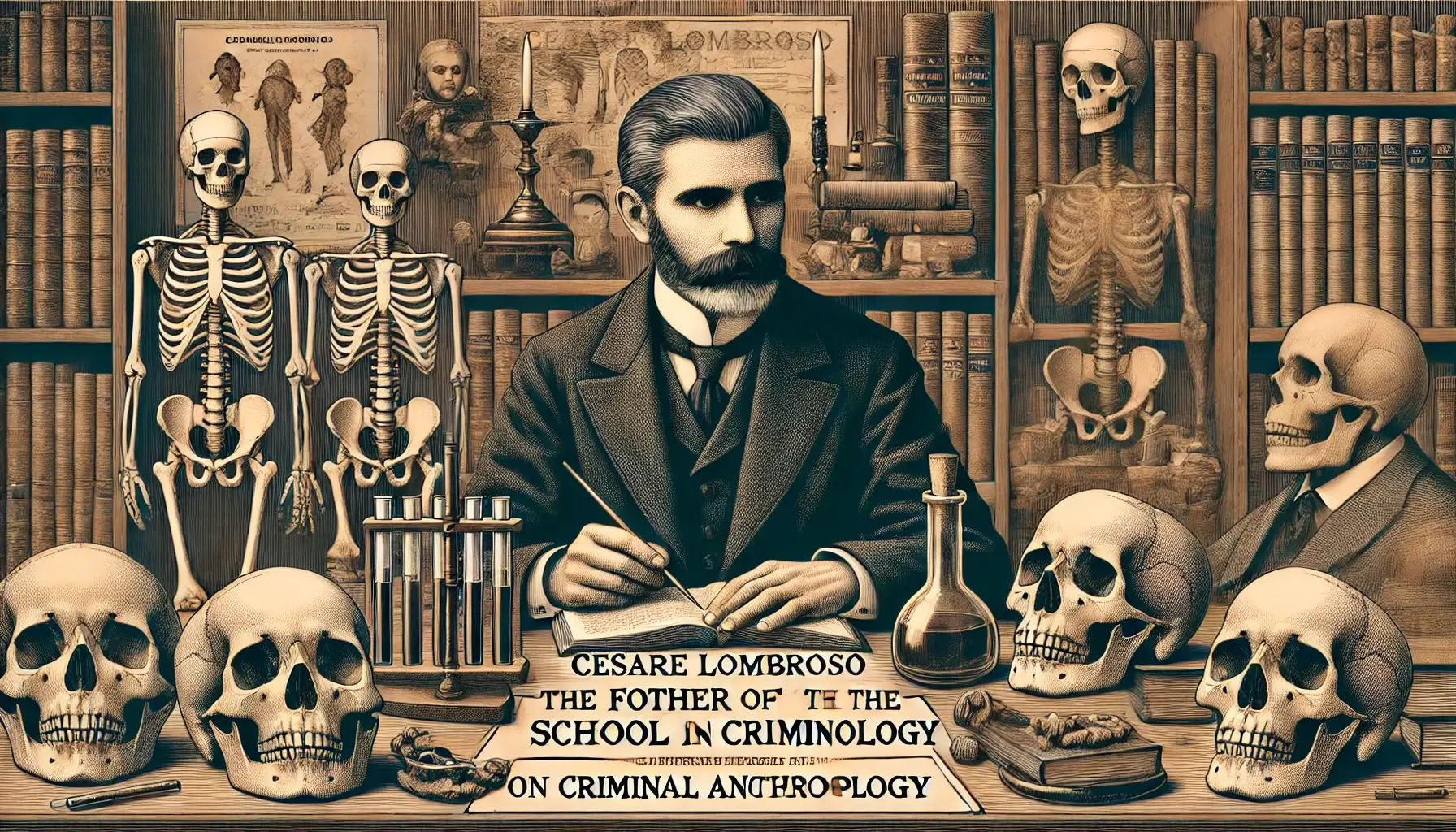The Formative School represents a pivotal framework in the history of criminology, offering foundational insights into understanding criminal behavior. Emerging during the late 19th and early 20th centuries, this school emphasized the role of biological, psychological, and sociological factors in shaping criminal tendencies. Unlike classical theories that focused on free will and rational choice, the Formative School sought to identify underlying determinants that predispose individuals to crime. This paper provides a detailed exploration of the Formative School, examining its origins, key contributors, theoretical underpinnings, and enduring impact on modern criminology.
Historical Context of the Formative School
The Rise of Scientific Inquiry in Criminology
The 19th century witnessed significant advancements in science, medicine, and anthropology, which influenced the emergence of the Formative School. During this period, scholars began to question the simplistic explanations of crime offered by classical theorists. Instead, they sought empirical evidence to understand the root causes of criminal behavior. The Formative School arose as a response to these intellectual and societal shifts, integrating interdisciplinary approaches to analyze crime comprehensively.
The Break from Classical Theory
Classical criminology, championed by thinkers like Cesare Beccaria and Jeremy Bentham, emphasized rationality and deterrence. In contrast, the Formative School argued that criminal behavior is not always a product of free will but often a result of factors beyond an individual’s control. This marked a paradigm shift, as the school introduced concepts of determinism and multifactorial analysis, laying the groundwork for a more nuanced understanding of crime.
Key Thinkers and Theories in the Formative School
Cesare Lombroso: The Classical Formative School
Cesare Lombroso is often regarded as the father of the Formative School. A physician and anthropologist, Lombroso’s groundbreaking work introduced the concept of the “born criminal.” He proposed that certain individuals possess innate biological traits that predispose them to criminality. Lombroso’s studies involved meticulous examinations of physical characteristics, such as skull shape, facial asymmetry, and other anatomical features, which he believed were indicative of criminal tendencies.
Key Contributions:
- Anthropological Criminology: Lombroso’s approach integrated anthropology into criminology, emphasizing the biological roots of crime.
- Typologies of Criminals: He classified offenders into categories, such as born criminals, occasional criminals, and habitual criminals.
- Major Works: Lombroso’s seminal book, L’Uomo Delinquente (The Criminal Man), became a cornerstone in criminological literature.
Enrico Ferri: The Multifactorial Approach
A student of Lombroso, Enrico Ferri expanded the scope of the Formative School by incorporating sociological and psychological factors into the study of crime. Ferri’s theory of multifactorial causation argued that criminal behavior results from a combination of biological predispositions, environmental conditions, and social influences.
Key Contributions:
- Interdisciplinary Analysis: Ferri emphasized the interplay between individual traits and external circumstances.
- Criminal Policy: He advocated for proactive measures, such as education and social reform, to prevent crime.
- Major Works: Ferri’s Criminal Sociology remains a significant text in the field.
Raffaele Garofalo: Natural Crime Theory
Raffaele Garofalo, another prominent figure of the Formative School, introduced the concept of “natural crime,” which he defined as offenses violating universal moral sentiments. Unlike Lombroso and Ferri, Garofalo focused on the ethical and psychological dimensions of criminal behavior.
Key Contributions:
- Moral Foundations: He emphasized the importance of moral instincts and their role in societal stability.
- Definition of Crime: Garofalo’s natural crime theory provided a more philosophical perspective, aligning legal definitions with ethical principles.
- Major Works: His book Criminology elaborated on these ideas and influenced subsequent criminological thought.

Modern Developments in the Formative School
Integration of Psychological Theories
The Formative School’s emphasis on determinism paved the way for integrating psychological theories into criminology. Modern scholars have expanded upon Ferri’s and Garofalo’s ideas, exploring how mental health disorders, personality traits, and cognitive processes influence criminal behavior.
Advancements in Genetic Research
Building on Lombroso’s biological focus, contemporary researchers have utilized genetic studies to investigate the heritability of criminal tendencies. The advent of technologies like genome mapping has provided empirical evidence supporting the role of genetic predispositions in certain types of criminality.
Sociological Extensions
Ferri’s multifactorial approach has inspired sociological studies that examine the impact of social structures, inequality, and cultural norms on crime rates. The school’s legacy is evident in contemporary theories, such as strain theory and social disorganization theory.
Critiques and Challenges
Biological Determinism
One of the most significant criticisms of the Formative School is its reliance on biological determinism. Critics argue that Lombroso’s theories oversimplify the complex interplay of factors influencing criminal behavior and risk stigmatizing individuals based on physical traits.
Ethical Concerns
Lombroso’s typologies have been criticized for their potential to reinforce discriminatory practices. Modern criminologists advocate for approaches that emphasize rehabilitation and social justice rather than deterministic categorizations.
Methodological Limitations
The early studies of the Formative School often lacked rigorous scientific methodology. Contemporary researchers have highlighted the need for more robust empirical frameworks to validate its claims.
The Formative School’s Role in Modern Criminology
Influence on Criminal Justice Policies
The Formative School’s interdisciplinary approach has informed policies aimed at addressing the root causes of crime. Initiatives such as mental health interventions, social welfare programs, and community policing draw inspiration from its principles.
Educational Impact
The school’s emphasis on empirical research and interdisciplinary analysis has shaped criminology curricula worldwide. Its legacy endures in academic programs that integrate biology, psychology, and sociology.
Technological Applications
Modern technologies, such as artificial intelligence and data analytics, have been employed to build upon the school’s methodologies. These tools enable researchers to analyze complex datasets, uncovering patterns and predictors of criminal behavior.
Conclusion
The Formative School has left an indelible mark on the field of criminology, providing a comprehensive framework for understanding the multifaceted nature of crime. Through the pioneering work of Lombroso, Ferri, and Garofalo, it introduced groundbreaking concepts that continue to shape contemporary criminological thought. While the school has faced valid criticisms, its contributions to the development of interdisciplinary approaches and evidence-based policies remain invaluable. As criminology evolves, the principles of the Formative School serve as a reminder of the importance of scientific inquiry in addressing the complexities of human behavior.

